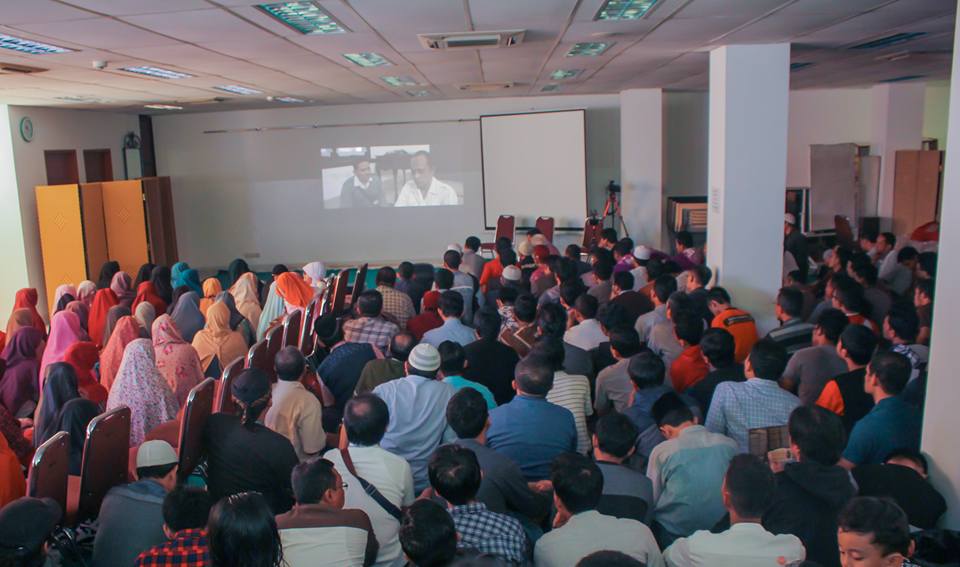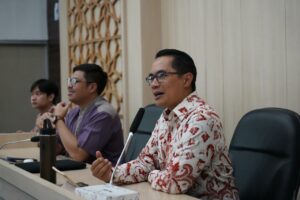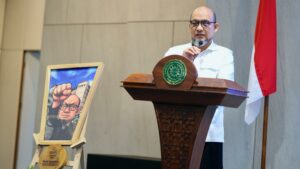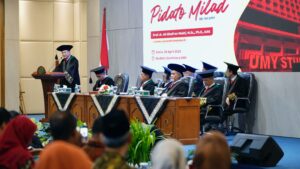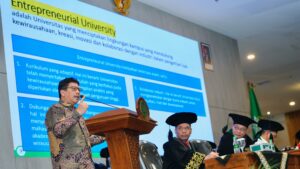‘Toedjoeh Kata’, a film by Kine of Universitas Muhammadiyah Yogyakarta (UMY) has been played since May 2017 and watched by more than 5,000 people from 22 times of viewing in 11 cities in Java, Sulawesi, Sumatera, and Kalimantan, namely Yogyakarta, Surabaya, Jakarta, Bandung, Bandar Lampung, Solo and Pontianak. Indeed, the film was played in Solo by the invitation from Syariah Board of Surakarta to celebrate the proclamation of the Republic of Indonesia.
“The success is supported by several communities such as Go Hijrah in Surabaya, Jejak Islam untuk Bangsa in Jakarta, Teras Dakwah in Yogyakarta, and many more,” mentioned RM Dimas Widiarto S.W., S.H. as the film director. Besides, there were a lot requests from elementary, junior and senior high schools, and Islamic schools to have the film screening to assist teachers to provide understanding of history to students.
Having thousands of viewers in film industries through national cinemas is considered ordinary since people’s access to see the films are wide and they are also prompted by the publication attracting public. The condition is really different from independent films out of the industries. Due to limited access and screening locations, 5,000 viewers are amazing compared to public interest in the best FFI 2017 reached 20,000 viewers in cinemas.
Dimas added that the ‘Toedjoeh Kata” tells about Ki Bagus Hadikusumo in an event of the omitting of the seven words about Islamic Sharia before a meeting of PPKI on 18 August 1945. ‘Toedjoeh Kata’ is the first documentary film since the proclamation of Indonesia reviewing history about the change of Jakarta Charter agreed by BPUPKI on 22 June 1945. “Revealing the fact hidden for 70 years, it is not surprising when public is enthusiastic,” maintained Dimas.
Interestingly, the film unites the viewers from teenagers to veterans. In one of the film screenings, there was an old man who met and talked to Kasman Singodimejo. “Kasman is an unforgotten figure in Indonesian history. He had a huge role in this country, particularly when Ki Bagus faced a dilemma to omit the seven words on Jakarta Charter. After Ki Bagus passed away, Kasman questioned a promise to return Muslims’ right on the constitution,” declared Dimas.
He also said that the viewers expected the ‘ToedjoehKata’ to be a sequel or prequel, or to make the film duration longer so that the film presents a complete view of history of Muslims’ struggles in three constitution makings since BPUPKI, PPKI, till a Constituent era of 1950. “The film becomes an educational medium to connect series of history for all generation. Indeed, the film also became a semifinalist in a film festival in Africa. We also hope that this film can be played abroad so that it can represent Indonesian history Indonesia in international areas,” he ended.
